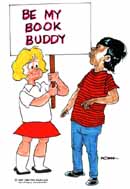 For this blog I will reflect on the observations that I completed about a selected student in my class.
For this blog I will reflect on the observations that I completed about a selected student in my class.
What are your overall impressions of this observation?
The reason why I chose this student to observe and speak with was to get to know her better. She came to school later in the year, and has fit in very well, she does not have any discipline problems and has good grades, so she tends to be overlooked by her teachers. It was very interesting to learn about her. I was so pleased to get to know her.
Overall this observation was very good and important to get to know a student who may be overlooked. I also found that taking the time to really talk with and watch one particular student really gives the teacher some insight on what the student really needs from us as educators. If I had the time I would do observations and interviews of all of my students in the beginning to get to know them all better.
What did you learn as a result of the fieldwork?
As a result of this fieldwork I learned a lot. I learned so much about this student's life (without getting too personal here) and her struggles. When meeting this young lady, one would never assume how tumultuous her life has been. She has been in 5 schools in 2 countries in her 8 years as a student. I also learned what a positive influence she has on her peers, she is a very straight-laced young person, and encourages her friends to attend classes when they want to skip, and she also takes the initiative to help friends who are experimenting with drugs and alcohol. I was very lucky to share some time with her.
I also learned how valuable interviews and observations can be for educators. I learned how students really do want to talk about themselves and express how they feel to their teachers. Our students deserve to have us help them and listen to them. As an educator I will continue interviews and observations after this fieldwork has been completed.
What is the value in case study research and analysis in terms of classroom practice?
Classroom practice can be greatly improved when teachers take the time to really get to know their students. As a teacher it is very important to take the time to reflect on practice - what observations does is forces the teacher to look at what the students are really doing and talking to them about their lives. Doing this type of research and analysis gives the teacher the ability and time to reflect on how students are reacting to their instruction and really understand what the student's lives are like. It is hard to remember what it is like to be 13 years old, and doing this will really give students a voice in the classroom.
What is the value of the ethnographic narrative?
I really feel that the greatest value in ethnographic narrative is reflection. Their is usually so little time for educators to reflect on their teaching and their students, this causes one to slow down, step back and think. There are a lot of books that talk about reflective practice and tell teachers to reflect, but the ethnographic narrative actually MAKES a teacher reflect. This places the teacher in a place where they can take the time with a student and their practice.
How will this information assist future teachers (next year’s teachers) as well as yourself in
meeting the needs of this particular second language learner?
I believe the future teachers of this student will be able to understand the stress that this young girl has. Reading the case study and narrative will cause the teacher to immediately want to get to know her better, and want to help her with her life.
This information will also help the teacher understand the practices and instruction that really benefit her, and how she can benefit the class. This young woman has a lot to give, but I didn't even really realize it until I took the time to get to know her and talked to her. It would be really nice to receive these types of case studies and narratives about all students before they enter our classrooms.
MTSU Honor Statement: This assignment/assessment was solely written by me. In no way have I, Jennifer Lassen, plagiarized (represented the work of another as my own) or otherwise violated the copyright laws and academic conventions of fair use. I know that violations of this policy may result in my being dismissed from Middle Tennessee State University and/or appropriate legal action being taken against me.
Jennifer Lassen
10-26-10
